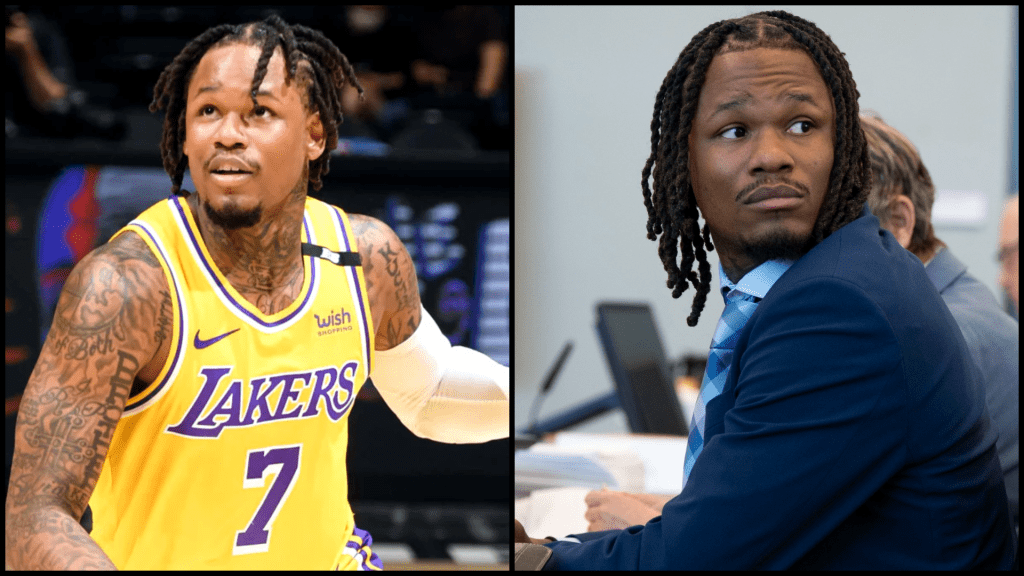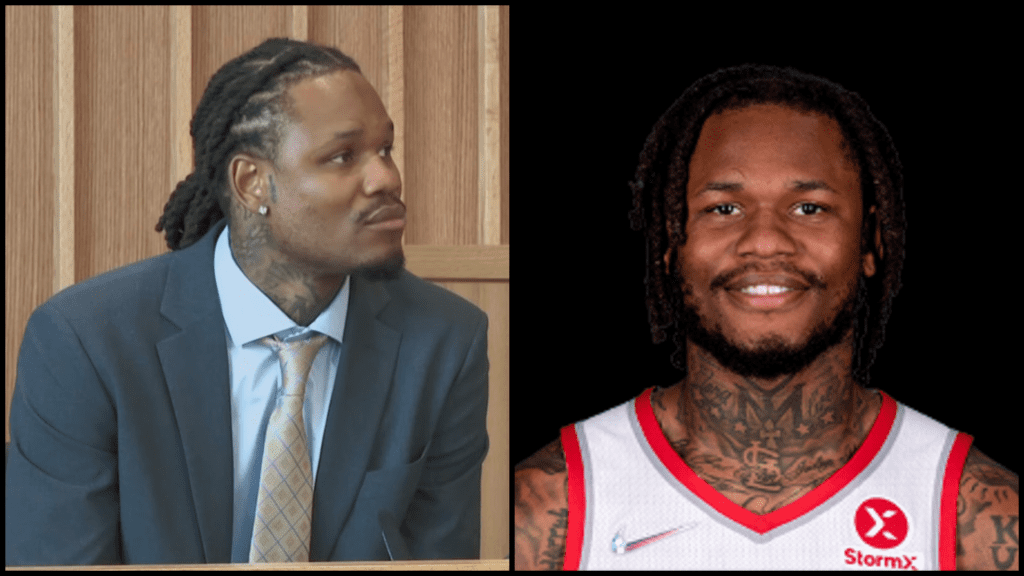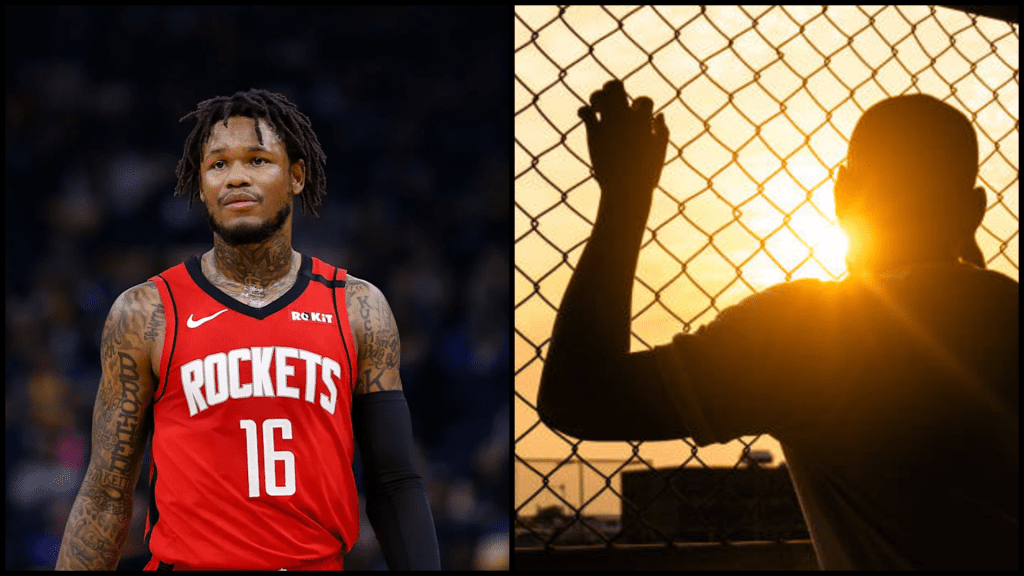Shocking Downfall: Former NBA Draft Pick Ben McLemore Gets 8‑Year Prison Sentence After Rape Conviction

It felt surreal scrolling through the headlines. I remember thinking how fast the tides can turn—from college hero to NBA draft darling, to overseas journeyman, and now one of the darkest chapters imaginable. Ben McLemore, the seventh overall pick in the 2013 NBA Draft, was sentenced to over eight years in prison after being convicted of raping a young woman during a team party in Lake Oswego, Oregon. The sentence—100 months—is more than just a legal penalty; it’s a crushing, tragic full stop on what was once a promising professional basketball journey.
Ben McLemore’s story began with tremendous hope. He was a star at the University of Kansas, known for his smooth shooting stroke, athleticism, and poise. He entered the NBA with the Sacramento Kings carrying the weight of great expectations. Over time, his career morphed into a journeyman’s tale—Sacramento, Memphis, Houston, the Lakers, Portland. Though he never quite lived up to the superstar hype, he carved out a respectable role as a rotation player, a streaky shooter, and someone who could come off the bench and give teams a lift. Even after his NBA chapter ended in 2022, McLemore found opportunities overseas, playing in Europe, China, Turkey, and Spain. The dream lived on, at least professionally.
But now, all of that feels like another lifetime.

The incident in question dates back to October 2021. It happened at a house party hosted by then-Blazers teammate Robert Covington. According to court testimony, the woman—just 21 years old at the time—had been drinking heavily and was drifting in and out of consciousness when the assault occurred. Prosecutors argued that McLemore took advantage of her while she was unable to consent, something the jury ultimately agreed with. The charges were serious: first-degree rape, unlawful sexual penetration, and second-degree sexual abuse. A second abuse charge was dropped, but the weight of the verdict still came crashing down.
In court, McLemore maintained that the encounter had been consensual. He testified that both he and the woman had been drinking, and that she initiated the intimacy. He said she was not unconscious, that she even straddled him. But crucially, he also admitted they never spoke during the encounter—not even to establish consent. The prosecution, on the other hand, presented a different, chilling picture: one where a young woman, incapacitated by alcohol, was assaulted by someone she trusted in a house full of teammates and friends.
The jury found his explanation unconvincing.
The courtroom scene during sentencing was difficult to witness. The victim read a powerful impact statement, describing how the assault shattered her sense of safety and left her with lasting trauma. Her voice was steady, but the emotion beneath every word was unmistakable. She said McLemore “used my vulnerability against me,” a line that hung heavy in the air. She spoke not just as a victim, but as someone seeking accountability in a world where justice often feels out of reach.
And then came the sentence: 100 months in prison. Just over eight years. A moment that likely felt both too long and not long enough, depending on who you ask. The judge’s tone was firm. He referenced Oregon’s sentencing guidelines for Class A felonies and emphasized that the law must apply equally, even to those who once played under the bright lights of the NBA.
For McLemore, who just turned 32, this could mark the end of his public life as we know it. Prison time for athletes—especially those with once-promising careers—is often the final, irreversible fall. The league moves on. Teams reassign memories. Fans forget. And what’s left is the harsh reality that actions have consequences, no matter your fame or past glory.

The tragedy here runs deep on all sides. A young woman must live with the memory of a traumatic experience, one that she says upended her life. A man who once inspired young fans with his dunks and deep threes now faces nearly a decade behind bars. And a basketball community that once embraced him must now reconcile that someone they cheered for is capable of something so deeply harmful.
There’s also something deeply uncomfortable in watching another name fall off the pedestal. We’ve seen this pattern before—athletes who find early success, only to be undone by poor choices, unchecked privilege, or simply thinking they’re untouchable. It’s a painful reminder that talent and character do not always go hand in hand. McLemore isn’t the first, and sadly, he may not be the last.
Social media reactions have been a mix of disbelief, anger, and disappointment. Some fans express sorrow over what could have been, while others rightfully center their empathy on the victim. There’s no silver lining here. Just the cold, brutal truth that justice has been served in a case where the damage cannot be undone.
The Portland Trail Blazers, the team McLemore was with at the time, declined to comment publicly, citing the sensitivity of the matter and the fact that McLemore was no longer part of the organization. It’s a familiar response, but one that speaks volumes about the way teams often distance themselves once the headlines turn sour.
In the aftermath, many are now asking hard questions. How do we hold athletes accountable off the court? How do teams create environments where this kind of behavior is not tolerated or swept under the rug? And perhaps most importantly: how do we support victims, especially when the accused holds fame and power?
There’s no easy answer, but there is a necessary truth: no one is above the law. Fame, talent, or a highlight reel don’t erase responsibility. And in this case, the law responded decisively.
Ben McLemore once said he hoped to use basketball to provide a better life for his family, that he wanted to be a role model to kids growing up in hard circumstances. In some ways, he did achieve that—at least for a time. But that story is now overshadowed by one night, one choice, and the harm it caused.
As he begins his sentence, the world moves on. New names rise in the draft. New rookies sign contracts. Fans shift their focus to the next game, the next season. But for those involved in this case, the impact will linger far beyond the box scores.
What remains is a sobering reminder that the decisions we make—no matter who we are—can change everything.